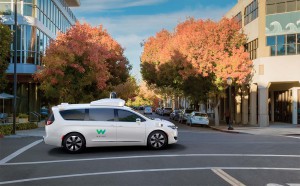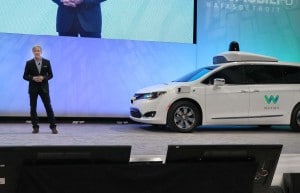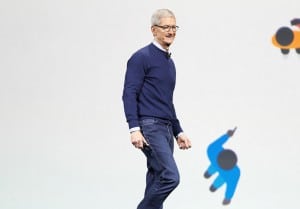
Waymo, the autonomous vehicle spin-off from Google, has signed a deal with Avis to have the daily rental giant manage some of the self-driving vehicles it is operating in the Phoenix area as part of a ride-share test program.
Apple, meanwhile, is reportedly teaming up with Avis rival Hertz program, in this case to lease a handful of Lexus SUVs that it will modify as part of its own autonomous vehicle project – something that Apple CEO Tim Cook recently described as “the mother of all AI projects.”

In the race to get autonomous, along with more advanced driverless, vehicles on the road within the next decade, established automakers and tech firms alike are lining up to find partners that can help accelerate their development programs.
Volvo Cars and Swedish auto safety supplier Autoliv last year launched a venture called Zenuity to develop autonomous vehicle software. On Tuesday they announced they will expand that alliance to include Nvidia, a firm known for its computer graphics technology. Together, the three partners hope to have the first fully autonomous Volvo on sale by 2021, and they could offer their software to other automakers, as well. Volvo has also been providing vehicles for testing by ride-sharing firm Uber.

Many of the new alliances are non-exclusive. Nvidia already has ties to Toyota, Audi and Mercedes, for example. And Mercedes’ parent Daimler AG formed another partnership with German supplier Rober Bosch in April. Rival BMW is teamed up with chipmaker Intel, as well as Israeli vehicle vision system Mobileye, which Intel recently purchased.
(Lyft expands its own autonomous program; partners with nuTonomy. Click Here for more.)
On the technical side, Waymo has largely been handling things on its own, for now only reaching out to partners to purchase vehicles it can modify using its own software. Waymo announced in January that it is now developing its own hardware, such as radar and LIDAR – 3D, high-definition laser – sensors. It initially relied on Lexus RX SUVs similar to those Apple is now leasing. More recently, Waymo signed a deal to acquire more than 100 Chrysler Pacifica Hybrid plug-in minivans.
The first of those have already been updated and are now in use in the Phoenix area as part of a ride-sharing program that is, for the moment, free to use – though prospective customers have to sign up and be accepted by Waymo.
With the program expanding rapidly, the subsidiary of Alphabet, Inc. apparently wants to have some outside help on logistics. And that’s where Avis comes in. It will update some of its Phoenix-area facilities to house, service and otherwise maintain the self-driving minivans for Waymo.
As for Apple, a report that first appeared on CNBC suggests that Hertz will simply provide a handful of its rental vehicles to the tech giant. They, in turn, will be modified to use Apple’s AI-driven smart car technology.

The tech company has long been rumored to be pushing into the automotive space – though it also appeared to make major cuts in the program earlier this year. Only recently did Apple go public – sort of – when CEO Cook described autonomous vehicles as the “mother of all AI projects,” adding in a Bloomberg news service interview that, “We’re focusing on autonomous systems.”
Though both Apple and Waymo have incredible assets they can draw from to fund their self-driving vehicle projects it remains unclear what they would actually do once they have market-ready technologies. Waymo CEO John Krafcik has made it clear his company doesn’t want to get into the car building business. And the cuts at Apple appear to have come in the area of the project that might have been pushing to develop a Tesla-like EV.
That has led a number of observers to suspect that both Apple and Waymo could have longer-term alliances in mind with the likes of Hertz and Avis.
(GM rolls out 130 Chevy Bolt battery-electric autonomous vehicles for start of test program. Click Here for the full story.)

The rental firms “have experience in financing, buying, and reselling large numbers of vehicles, and have the real estate and physical urban presence to maintain, clean, and potentially run fleets, Goldman Sachs analyst Stefan Burgstaller wrote last month. “Car rental companies are likely to be willing participants in autonomous fleet management joint ventures or partnerships.”
Such an approach might fit into the broader scheme of things as the conventional automotive business model comes under attack. Several recent studies – from both the Boston Consulting Group and RethinkX – have suggested that private car ownership will sharply decline under pressure from ride-sharing services, especially as electric vehicles and autonomous technologies become commonplace. For its part, Uber has predicted it will be able to sharply undercut the cost of ownership once it starts to field fully driverless vehicles.
“We can imagine this (autonomous technology) in ridesharing, in transportation, trucking, logistics even personal use vehicles and licensing with automakers, public transport and solving the last mile,” a reference to the need to get people from transportation drop-off points to their homes and offices, Waymo CEO John Krafcik said last year.
(Shake-up at Tesla as autonomous vehicle chief bolts after just six months. Click Here for the story.)







